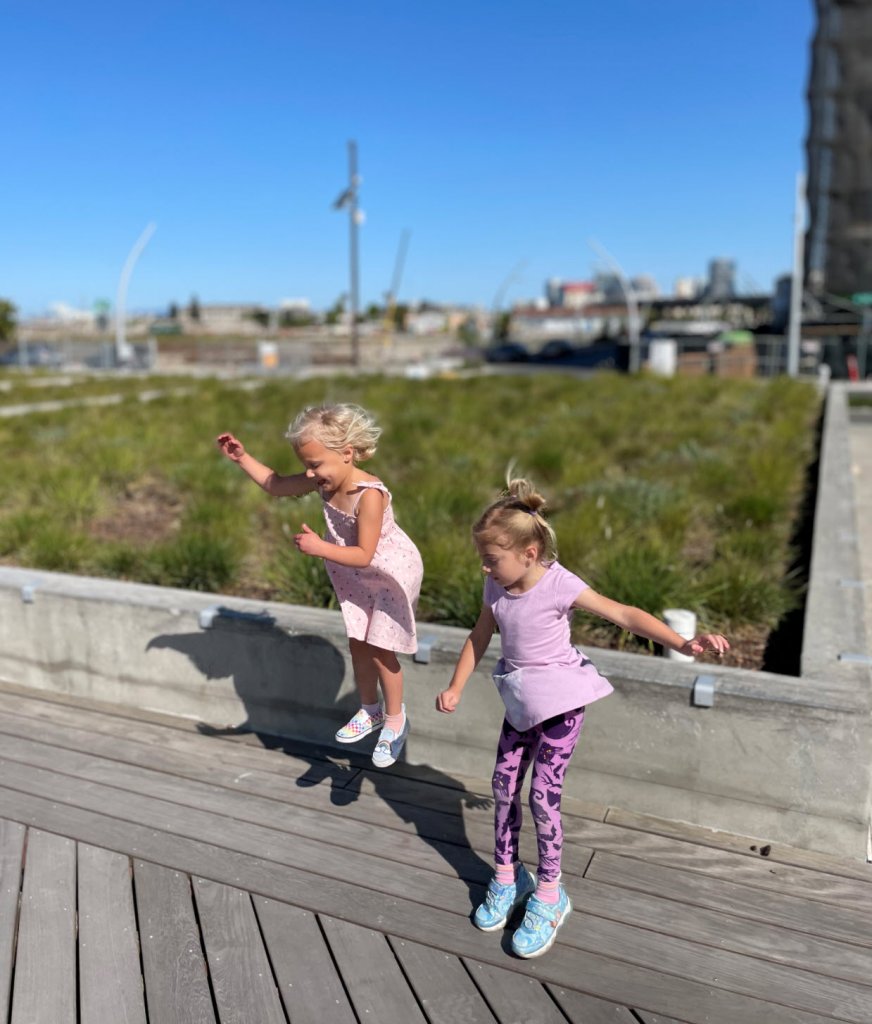Brooklyn Basin: Creating New Possibilities for a Restored Waterfront Community
The Brooklyn Basin project represents an opportunity for a restored waterfront community with parks, trails, residential and commercial spaces along the Oakland waterfront.
On 64 acres of previously industrial waterfront along the Oakland Estuary, a new community with public parks, Bay Trail improvements, and residential and commercial living space is taking shape. Brooklyn Basin is transforming into a lively place to live, work, and enjoy the outdoors. The ambitious redevelopment project seeks to reconnect the community to Oakland’s historic waterfront and estuary through careful remediation efforts and creation of new outdoor spaces. The process was anything but simple—complicated permitting, planning, and monitoring have been required along the way. With expertise in biological studies, project design, monitoring, permitting and compliance, WRA, Inc. has supported the developer, Signature Development Group, since 2013 to bring the project vision to life.
We are thrilled to support a project that is creating a vibrant and ecologically restorative community while cleaning up hazardous waste at the same time,” said Leslie Lazarotti, WRA principal. “It is one of the most satisfying moments of my career,” she says about the ongoing transformation of the Brooklyn Basin site.”
A project with shared ecological and community benefits
WRA’s company vision is to create a sustainable future where people and the environment thrive, making the Brooklyn Basin project a natural fit for our team and a great addition to our shoreline redevelopment project portfolio. In addition to providing the opportunity to use an in-fill location to create a more diverse space of parks, residential, and commercial opportunities for the city of Oakland, the project extended the Bay Trail—a 500-mile-long trail around the San Francisco Bay that connects parks, community spaces, and recreational areas.
A major win for the Bay Area, the once-contaminated and derelict site now supports over 30 acres of public parks, trails and marinas which improve quality of life, promote community health, and counteract the negative effects of pollution in urban spaces. The vast network of parks and open spaces designed by award-winning landscape architecture firm Einwiller Kuehl as part of the Brooklyn Basin project will improve the area while also opening up a historic shoreline that was previously inaccessible. As part of the remediation plan, contaminated soils were removed, and the shoreline was shifted landward, enlarging San Francisco Bay.
Pushing through a complicated permitting process
Naturally, a project of this size and scope faced many planning and permitting hurdles due to the number of agencies involved including: National Marine Fisheries Service, Regional Water Quality Control Board, San Francisco Bay Conservation and Development Commission, State Lands Commission, and U.S. Army Corps of Engineers. WRA served as a guide to the developer to help them navigate complex regulatory challenges. Working with municipalities, permitting agencies, and the developer, WRA created a clear plan for environmental mitigation and impact assessment that were accepted and implemented to keep the project moving forward.
Going forward, WRA will consult on continued permit compliance as needed. Each phase of the ongoing project will require individualized approval from different regulatory agencies. WRA will continue to help navigate ongoing permit requirements and acquire necessary approvals.
Cleaned up for good
Perhaps one of the most exciting aspects of the project is the restoration of habitat along the estuary that suffered from a history of contamination and heavy industrial use before its transformation. Remediation and cleanup efforts led by engineering and environmental consultancy ENGEO removed left-over hazardous materials, reinvigorating the waterfront to support important natural life once again.
The Brooklyn Basin project represents an opportunity to demonstrate that urban life doesn’t have to be devoid of open and green spaces. This project is a testament that cities can be beneficial to both people and the environment, simultaneously. Ultimately, project will successfully create a reclaimed space where the community will have the chance to experience the Oakland estuary and the regionally connected shoreline, creating new experiences, opportunities, and appreciation for the balance which nature can bring to an urban area.
Contact us
For more information about this project or to inquire about WRA’s suite of services for similar projects, contact Leslie Lazarotti or Ellie Knecht.




